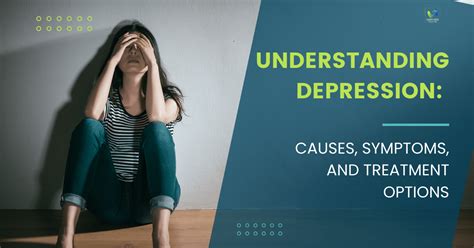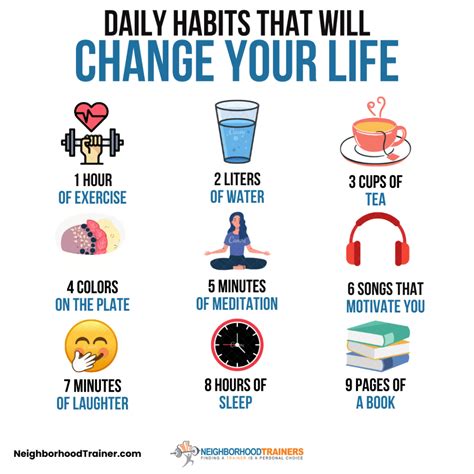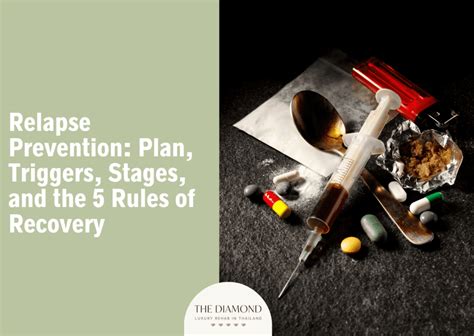Intro
Discover 5 effective ways to manage depression, including therapy, self-care, and stress reduction techniques, to help alleviate symptoms and improve mental health, overcoming anxiety and mood disorders.
Dealing with depression can be a daunting task, especially when it feels like the whole world is weighing down on you. It's a mental health condition that affects millions of people worldwide, causing feelings of sadness, hopelessness, and a lack of interest in activities that once brought joy. However, it's essential to remember that depression is not a sign of weakness, and seeking help is the first step towards recovery. In this article, we'll explore five ways to deal with depression, from self-care strategies to professional treatments.
Depression can manifest in different ways, from mild to severe, and can be triggered by various factors, including genetics, trauma, and significant life changes. It's crucial to understand that depression is not something that can be simply "snapped out of" or overcome by willpower alone. It requires a comprehensive approach that addresses the physical, emotional, and psychological aspects of the condition. By acknowledging the complexity of depression and seeking help, individuals can begin their journey towards healing and recovery.
The importance of addressing depression cannot be overstated. Untreated depression can lead to severe consequences, including strained relationships, decreased productivity, and even suicidal thoughts. Moreover, depression can have a significant impact on physical health, increasing the risk of chronic diseases like diabetes, heart disease, and obesity. By taking proactive steps to manage depression, individuals can reduce the risk of these complications and improve their overall quality of life. Whether you're struggling with depression yourself or supporting a loved one, it's essential to understand the available treatment options and strategies for managing this condition.
Understanding Depression

Causes and Risk Factors
The causes of depression are complex and multifaceted. While the exact causes are still not fully understood, research suggests that a combination of genetic, environmental, and psychological factors can contribute to the development of depression. Traumatic events, significant life changes, and chronic stress can trigger depressive episodes, while genetic predisposition and brain chemistry imbalances can increase the risk of developing depression. Additionally, certain medical conditions, such as hypothyroidism, and medications, like sedatives and antidepressants, can also contribute to depressive symptoms.Self-Care Strategies

Therapy and Counseling
Therapy and counseling are highly effective treatments for depression. Cognitive-behavioral therapy (CBT), interpersonal therapy (IPT), and psychodynamic therapy are some of the most commonly used approaches. These therapies can help individuals: * Identify and challenge negative thought patterns * Develop coping skills and strategies * Improve communication and relationship skills * Address underlying issues and traumas * Develop a more positive and realistic self-imageMedications and Treatments

Alternative Therapies
Alternative therapies, such as acupuncture, herbal supplements, and light therapy, can be used in conjunction with conventional treatments to manage depression. These therapies can help: * Reduce stress and anxiety * Improve mood and sleep quality * Increase energy levels and motivation * Enhance overall well-being and quality of lifeLifestyle Changes

Support Systems
Support systems, including friends, family, and support groups, can provide emotional support and help individuals feel less isolated. Connecting with others who have experienced similar struggles can help individuals: * Feel understood and validated * Share experiences and advice * Develop coping strategies and techniques * Build a sense of community and belongingRecovery and Relapse Prevention

Maintaining Progress
Maintaining progress and preventing relapse requires ongoing effort and commitment. Individuals can: * Set realistic goals and celebrate achievements * Develop a growth mindset and focus on personal growth * Practice self-compassion and self-forgiveness * Stay connected with support systems and seek help when needed * Continuously learn and develop new coping strategies and techniquesWhat are the symptoms of depression?
+The symptoms of depression can vary from person to person, but common symptoms include feelings of sadness, hopelessness, and a lack of interest in activities that once brought joy. Other symptoms can include changes in appetite, sleep patterns, and energy levels, as well as difficulty concentrating and making decisions.
How can I help a loved one with depression?
+Helping a loved one with depression requires empathy, understanding, and support. Encourage them to seek professional help, offer to accompany them to appointments, and help them stay connected with friends and family. Additionally, encourage them to engage in self-care activities, such as exercise, meditation, and healthy eating.
What are the most effective treatments for depression?
+The most effective treatments for depression often involve a combination of therapy, medication, and lifestyle changes. Cognitive-behavioral therapy (CBT), interpersonal therapy (IPT), and psychodynamic therapy are highly effective forms of therapy, while medications like selective serotonin reuptake inhibitors (SSRIs) and serotonin-norepinephrine reuptake inhibitors (SNRIs) can help regulate mood and reduce symptoms.
Can depression be cured?
+While depression can be managed and treated, it's not necessarily "cured" in the classical sense. However, with the right treatment and support, individuals can experience significant improvement in their symptoms and quality of life. It's essential to continue practicing self-care, attending therapy sessions, and taking medication as prescribed to maintain progress and prevent relapse.
How can I prevent relapse?
+Preventing relapse requires ongoing effort and commitment. Continuously practice self-care, attend therapy sessions, and take medication as prescribed. Stay connected with support systems, and seek help when needed. Additionally, develop a growth mindset, focus on personal growth, and practice self-compassion and self-forgiveness.
In conclusion, dealing with depression requires a comprehensive approach that addresses the physical, emotional, and psychological aspects of the condition. By understanding the causes and symptoms of depression, seeking professional help, and practicing self-care and stress-reducing techniques, individuals can manage their symptoms and improve their quality of life. Remember, depression is not a sign of weakness, and seeking help is the first step towards recovery. We encourage you to share this article with others, and to comment below with your own experiences and tips for managing depression. Together, we can work towards creating a supportive community that promotes mental health awareness and understanding.
